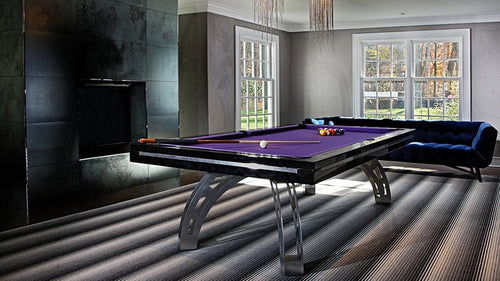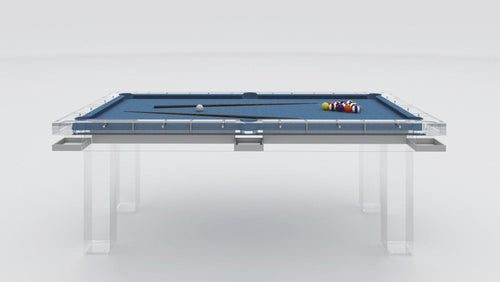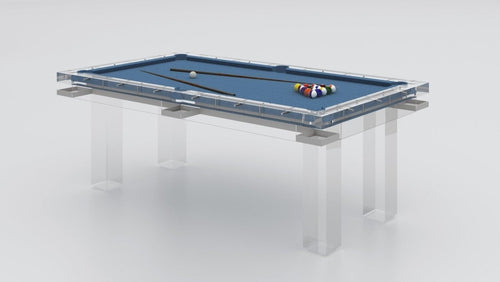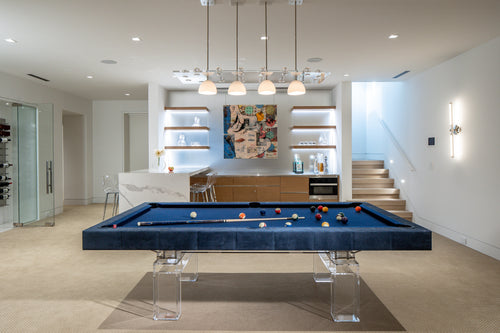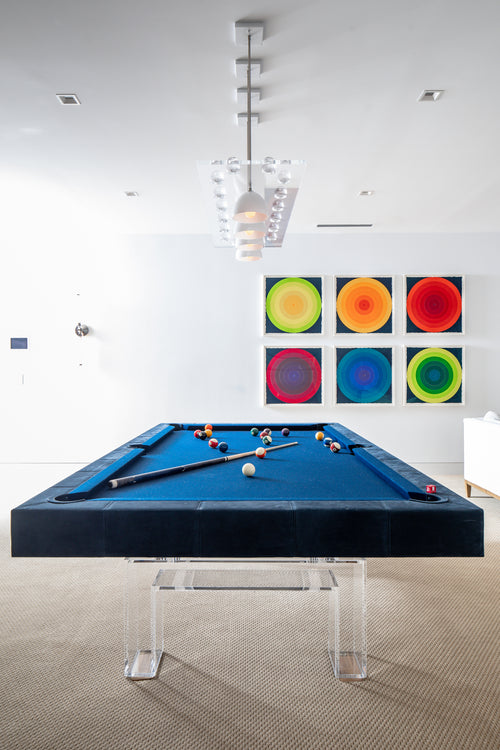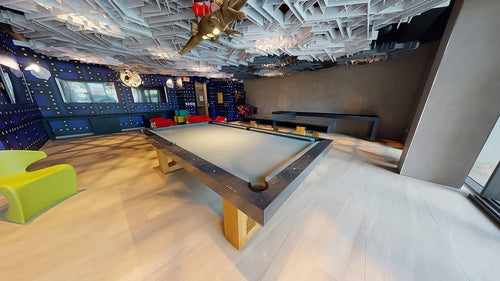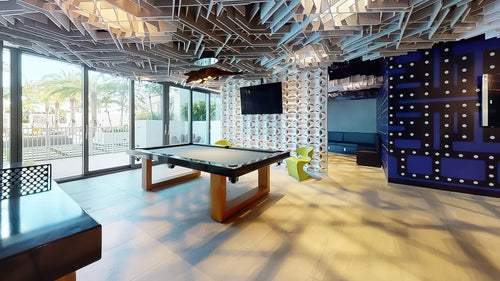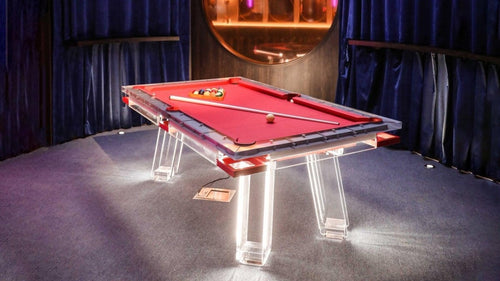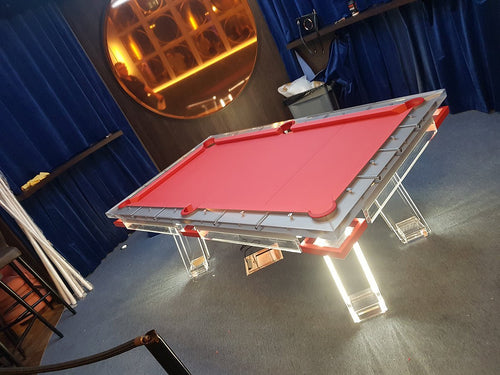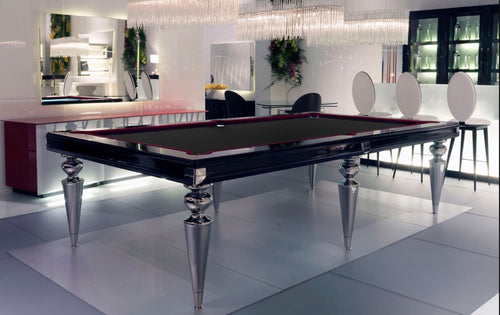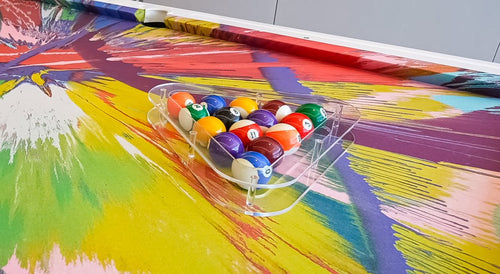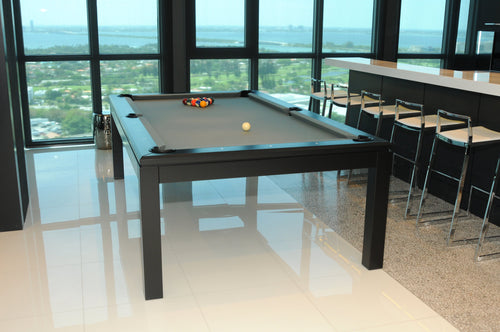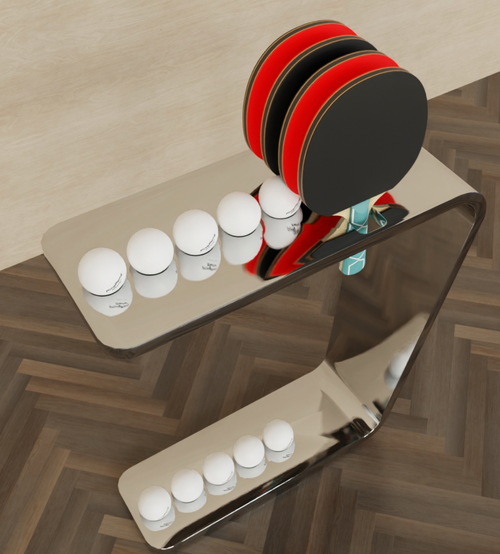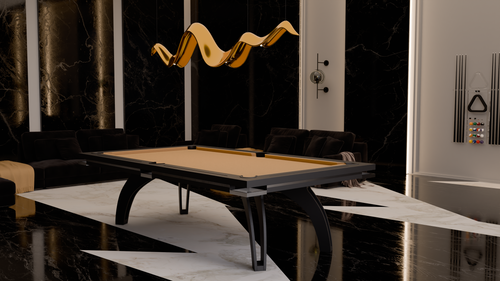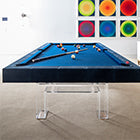Enjoy our modern designs
Published on November 6, 2024
Table of Contents
- Understanding the Definitions
- Physical and Mental Demands of Pool
- Organizational Recognition and Governance
- Pathways to Professionalism
- Perspectives from the Community
- Broader Implications and Comparisons
- Addressing Common Counterarguments
- Case Studies and Expert Opinions
- Conclusion: Embracing the Duality of Pool
- Further Reading and Resources
- Join the Conversation
Understanding the Definitions
What Constitutes a Sport?
"An activity involving physical exertion and skill in which an individual or team competes against another or others for entertainment."
Key Elements of a Sport:
- Physical Exertion: Engaging the body in movement and strength.
- Skill: Technical proficiency and expertise.
- Competition: Facing off against others to win.
- Entertainment: Providing enjoyment for participants and spectators.
Defining a Game
"A form of play or sport, especially a competitive one played according to rules and decided by skill, strength, or luck."
Key Elements of a Game:
- Rules: Structured guidelines governing play.
- Competition: Can be against others or oneself.
- Outcome Determinants: Skill, strength, or luck.
Comparing the Two
While both sports and games share similarities, the distinction often lies in the degree of physical activity and organizational structure. Sports typically emphasize physical exertion and formalized competition, whereas games may vary widely in their physical demands and competitive nature.
Physical and Mental Demands of Pool

Physical Exertion in Pool
At first glance, pool might not seem as physically demanding as soccer or basketball. However, dismissing its physical aspects overlooks several critical factors:
Stamina and Endurance:
High-level play requires sustained focus and minimal physical fatigue over extended periods.
Hand-Eye Coordination:
Precise movements and control are essential for accurate shots.
Flexibility and Strength:
Maintaining proper posture and executing shots demand muscular endurance and flexibility, particularly in the arms, shoulders, and back.
Supporting Evidence: A study in the Journal of Sports Sciences highlights that precision sports like pool engage significant muscle groups and fine motor skills similar to recognized physical sports.
Mental Agility and Strategy
Pool is as much a mental game as it is a physical one:
Strategic Planning:
Players must plan multiple moves ahead, considering angles, spin, and positioning.
Concentration:
High levels of focus are necessary to execute precise shots consistently.
Problem-Solving:
Each shot presents a unique challenge requiring immediate strategic decisions.
Supporting Evidence: Cognitive research indicates that activities like pool enhance mental acuity, strategic thinking, and decision-making skills.
Comparison to Traditional Sports
While pool's physical exertion may not match that of more overtly physical sports, the combination of fine motor skills, strategic planning, and sustained concentration aligns closely with the requirements of recognized sports such as archery and shooting.
Organizational Recognition and Governance

World Pool-Billiard Association (WPA)
The WPA is the global governing body for pool, overseeing international competitions, standardizing rules, and promoting the sport worldwide.
International Pool Association (IPA)
The IPA supports individual players through tournaments and resources, fostering growth in competitive and recreational pool.
Inclusion in Multi-Sport Events
Pool has been featured in the Asian Games since 1998 and is under consideration for future Olympic inclusion, reflecting its structured competitiveness.
Pathways to Professionalism

Becoming a Professional Pool Player
- Skill Development: Master techniques and consistency.
- Competitive Experience: Enter local, national, and international tournaments.
- Ranking: Climb official association leaderboards.
- Sponsorship: Secure financial and brand support.
Action Steps:
- Join WPA or IPA for resources and events.
- Train regularly including physical conditioning.
- Compete in tournaments at increasing levels of difficulty to build experience and ranking.
Supporting Evidence: Top professionals often train for several hours daily, incorporating both technical drills and physical conditioning to maintain focus and endurance during lengthy matches.
Perspectives from the Community
“Pool, like bowling and darts, is a sport. You use physical and mental skill to gain victory over your opponent.”
Enthusiasts emphasize both strategic thinking and precise execution as key athletic components.
“Pool requires physical precision and intense focus—like archery.”
This comparison highlights pool’s alignment with other precision-based Olympic sports.
Broader Implications and Comparisons
Counterargument: Pool Isn’t Physically Demanding
Rebuttal: Athleticism includes coordination, endurance, and fine motor control—all central to pool. Like chess boxing, it blends mental and physical challenges.
Counterargument: Lack of Media Coverage
Rebuttal: Coverage doesn’t define sport status. Many Olympic disciplines receive limited airtime yet remain rigorously athletic.
Case Studies and Expert Opinions
Dr. Emily Carter, Sports Psychologist
“Pool requires a unique blend of mental and physical skills. The precision and strategic planning involved are on par with any recognized sport.”
Mark Thompson, WPA Official
“Our structured competitions and global governance programs reflect pool’s legitimacy as a sport.”
Conclusion: Embracing the Duality of Pool
By examining physical demands, governance structures, community voices, and expert analysis, it’s clear that pool fulfills the criteria of a sport—even if it defies some traditional expectations. Whether you view it as a game or a sport, billiards offers depth, challenge, and global respect.
Further Reading and Resources
Join the Conversation
What do you think? Is pool a sport, a game, or both? Share your thoughts in the comments below or connect with us on social media!



